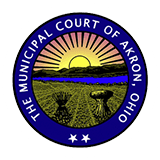Language Assistance Resources
Language Access Coordinator
The Akron Municipal Court will designate a Language Access Coordinator. The Language Access Coordinator, along with the Court Administrator (as applicable) and the Administrative Judge, will assist in ensuring that language services are delivered by the court in accordance with this plan and in accordance with this plan and the Rules of Superintendence for the Courts of Ohio, Rules 80 - 89.
Akron Municipal Court’s Language Access Coordinator can be reached by calling 330.375.2120 or emailing court@akronohio.gov. Complaints submitted under Section VIII of this Language Access Plan will be addressed by the Language Access Coordinator within a reasonable number of business days. In addition to the responsibilities already outlined in this plan, the Language Access Coordinator also has the following responsibilities:
- Identify qualified interpreters and translators to be included in an interpreter database or list as maintained by the court
- Track and collect data regarding the use of interpreters, languages needed, etc.
- Outline measures to ensure quality control of interpreters and translators
- Assign qualified interpreters, translators and bilingual employees to perform language assistance functions
Interpreters Used in the Courts
Under Ohio law and Supreme Court rules, there are two different instances in which a court must provide an interpreter: in a case or court function (see ATTACHMENT A: Sup.R. 80) and in connection with ancillary services (see ATTACHMENT C: Sup.R. 89). This distinction is important because the type of interpreter to be provided and the court’s responsibilities differ depending on the specific situation.
By statute, Ohio courts must appoint qualified interpreters. Specifically, section 2311.14 of the Ohio Revised Code provides that courts shall provide interpreters due to hearing, speech, or other impairments of a party or a witness to a case.
Additionally, Rule 88 of the Rules of Superintendence for the Courts of Ohio (see Attachment B), requires that the Akron Municipal Court appoint an interpreter in a case or court function when a LEP or deaf or hard of hearing individual requests an interpreter or when the court determines the services of an interpreter are necessary for the meaningful participation of the party or witness.
Under Ohio law, foreign language interpreters will be provided at court expense, if the party is found to be indigent. However, in order to comply with the prohibition against national origin discrimination in Title VI of the Civil Rights Act of 1964, 42 U.S.C. 2000d, et. seq., the Omnibus Crime Control and Safe Streets Act of 1968, 42 U.S.C. 3789d(c), and 28 C.F.R. Part 42, Subparts C and D, recipients of federal funds must provide meaningful access to limited English proficient (LEP) individuals. Lau v. Nichols, 414 U.S. 563 (1974). The U.S. Department of Justice advises that practices, such as charging for interpretation and translation services or seeking recoupment for those costs, significantly impair, restrict, or preclude the participation of LEP individuals in the judicial system and are inconsistent with recipients’ Title VI obligations. For more information, please refer to Guidance from the U.S. Department of Justice to state court justices and administrators’ letter from Assistant Attorney of the Civil Rights Division to Chief Justices and State Court Administrators (Aug. 16, 2010); Guidance to Federal Financial Assistance Recipients Regarding Title VI Prohibition Against National Origin Discrimination Affecting Limited English Proficient Persons, 67 Fed. Reg. 41455 (June 18, 2002).
In the Akron Municipal Court, sign language interpreters will be provided at court expense for all deaf or hard of hearing court parties, witnesses or jurors in compliance with the ADA.
Interpreters/Language Access
The Akron Municipal Court will make every effort to provide services to all LEP and deaf or hard- of-hearing persons in its jurisdiction. The most commonly used languages in the Akron Municipal Court are the following:
- Nepali
- Spanish
- Karen
- Burmese
- Serbian
- Mon
- Korean
- Bosnian
- Thai
- Chinese
- Russian
- Arabic
